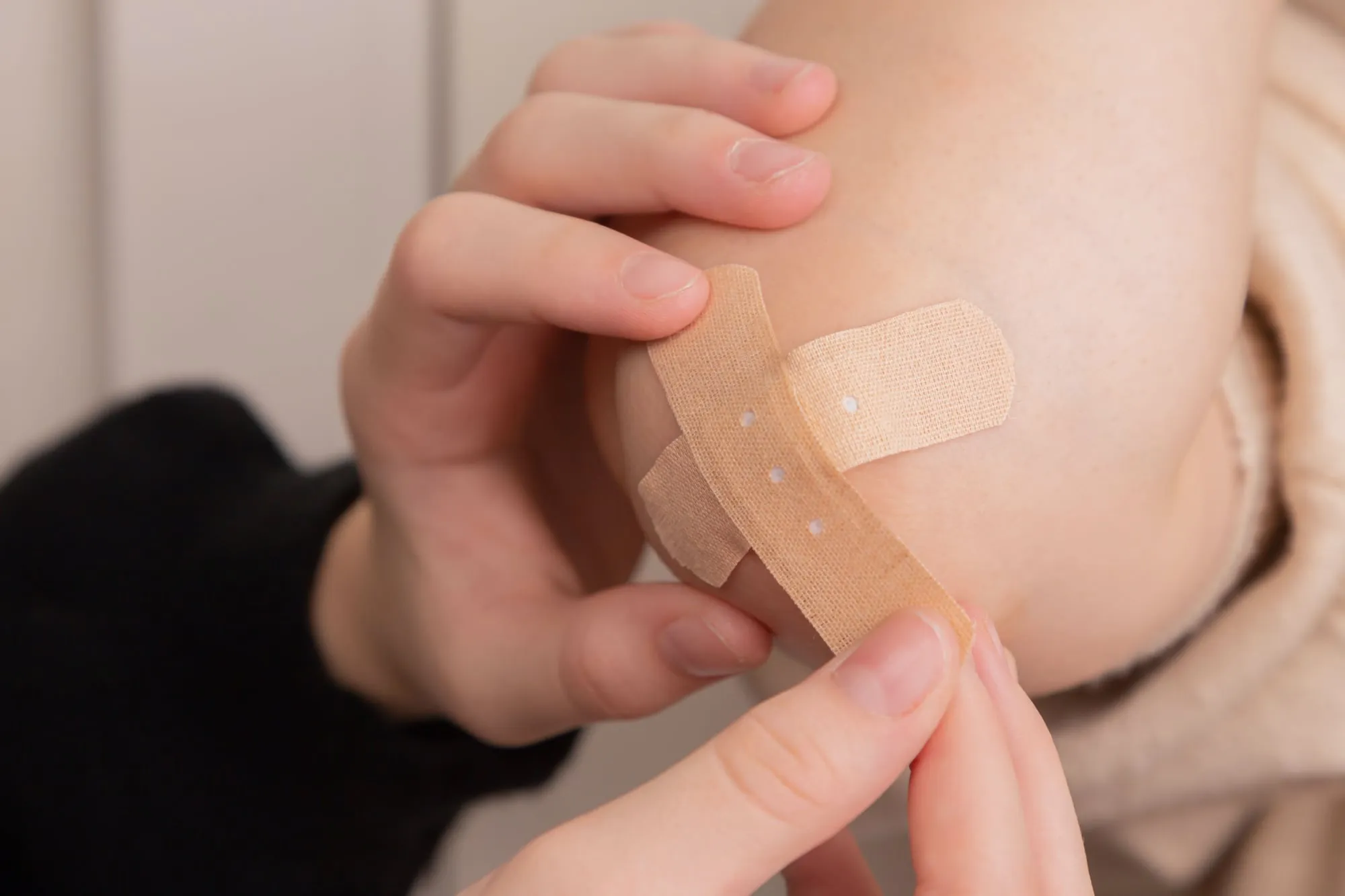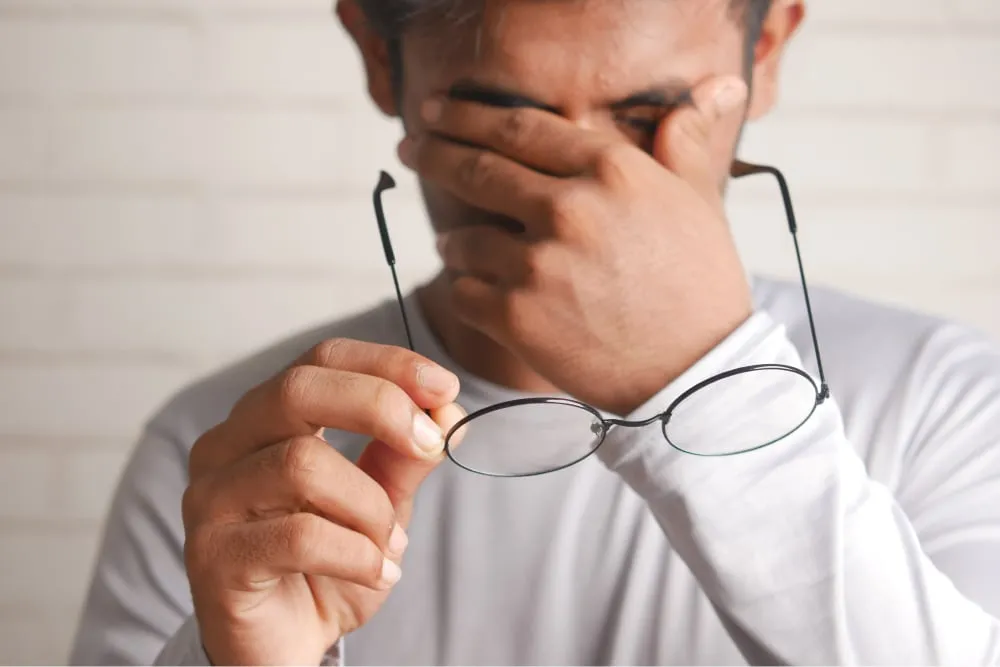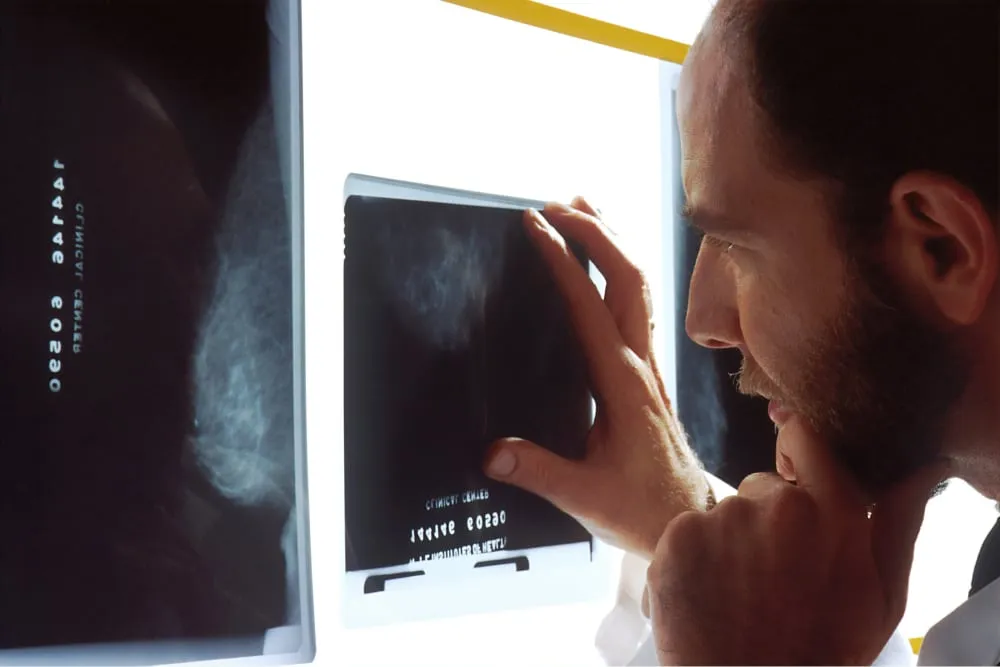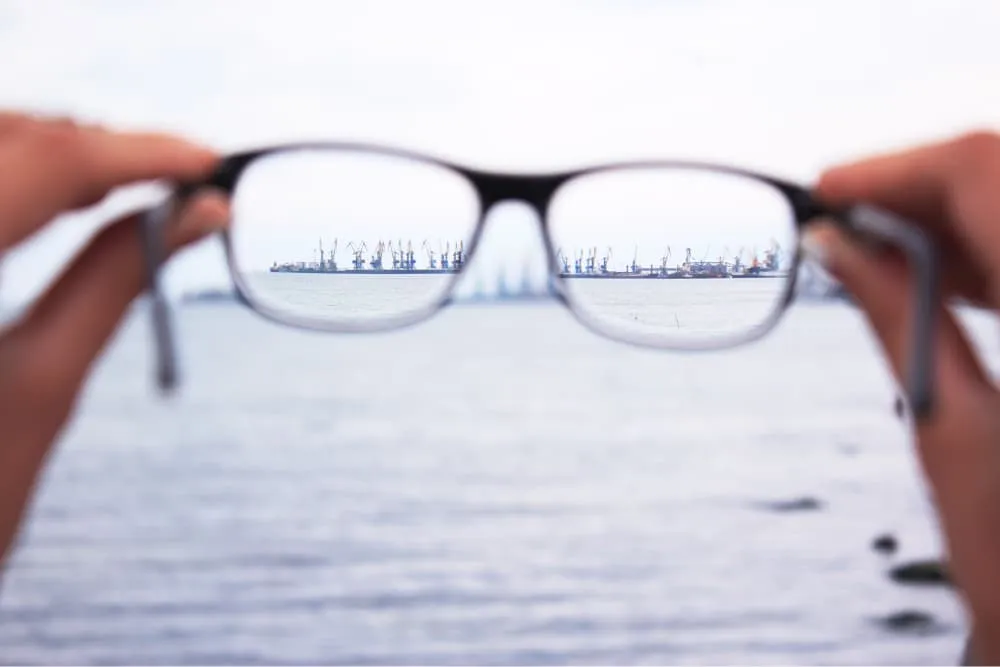What causes bruising?
Bruising is, of course, not exclusive to AN. It's generally caused by the bursting of small blood vessels, called capillaries, which run near the skin's surface. The telltale purple/blue/black mark of a bruise is actually the blood leaking out from these capillaries, and the swelling that results is what makes these injuries feel so tender.1
More often than not, a bruise is caused by a fall, hit, or other type of external force, but there are other, more internal, factors that could also lead to easily bruised skin.
Vitamin deficiencies
In some cases, easily bruised skin is one of the physical symptoms of vitamin deficiencies.
Most commonly, the tendency to bruise easily has been linked to a lack of vitamin C, a condition sometimes referred to as scurvy. The vitamin is essential in maintaining and repairing blood vessels, and a deficiency can make them more susceptible to bursting.2,3
A lack of vitamin K has also sometimes been associated with bruising. The mineral helps the body form blood clots, which could help prevent blood from leaking out of capillaries.4
Liver disease
Some types of chronic liver disease—and particularly, cirrhosis—have also been linked to easily bruised skin.
While the connection is still being studied, some research suggests that liver disease can lead to the decreased production of platelets, which are parts of the blood that help the human body form blood clots.2 Low platelet levels in the blood are often tied to bruising.
Anorexia bruising: How does AN impact bruising
Anorexia nervosa has been tied to many different skin issues, including dry or yellowing skin, brittle nails, and thinning hair. In many of these cases, the effects are linked to malnutrition brought on by the disordered eating patterns of AN.5
The same can also be said for bruising.
Vitamin C is not produced through the body, so it must be consumed through diet. In this way, a lack of vitamin C may be particularly prevalent for those who restrict their food intake.
As vitamin K can be produced through the gut biome, it’s rarer to experience a diet-based deficiency of this mineral. Still, the malabsorption of fat has been connected to both low vitamin K levels and anorexia nervosa.6,7
People who struggle with AN may also be more susceptible to medical complications like liver issues, thanks to a noteworthy overlap of anorexia nervosa and substance use disorder (SUD), including the kind of alcohol dependence that can more easily lead to cirrhosis of the liver.8
For someone who's already struggling with body shape and image, dealing with these physical signs of anorexia can be challenging. But it's possible to restore healthier skin with a thoughtful recovery plan.
How anorexia nervosa impacts healing
Another common sign of anorexia nervosa is the slower healing of cuts, wounds, and other injuries. And the mechanisms that lead to this slower recovery time can also impact how long a bruise may last on the skin.5
Once again, the tendency to severely limit food intake can bring on this problem. Issues associated with starvation and malnutrition can reduce the body’s ability to produce platelets and repair or maintain blood vessels.3
AN has also been associated with a weaker immune system overall, and some immune disorders could further impact healing or recovery time.9
Still, as with many of the effects of anorexia nervosa, the tendency to bruise easily can be reversed. A slow, steady, and safe refeeding process can not only help with gaining weight in a healthy way but also help the body make a strong recovery and return many damaged functions to pre-AN levels.
Finding help for anorexia nervosa
Anorexia nervosa and other eating disorders like bulimia nervosa and binge eating disorder are serious health risks. If you or a loved one are struggling with these conditions, seeking appropriate care is important.
Your primary care physician or therapist may be a good place to start, as these experts are generally knowledgeable on eating disorders and can help you determine your next best steps. If you're already experiencing issues like easily bruised or yellowing skin, you may also get further advice from your dermatologist on getting the nutrition you need to restore skin health.
Get help at Within
Our team of experts comes from a multidisciplinary background to help address the various physical, mental, and emotional issues behind eating disorders like anorexia nervosa. Call us today to see if we can help you get on the path to recovery.
Get help today







































